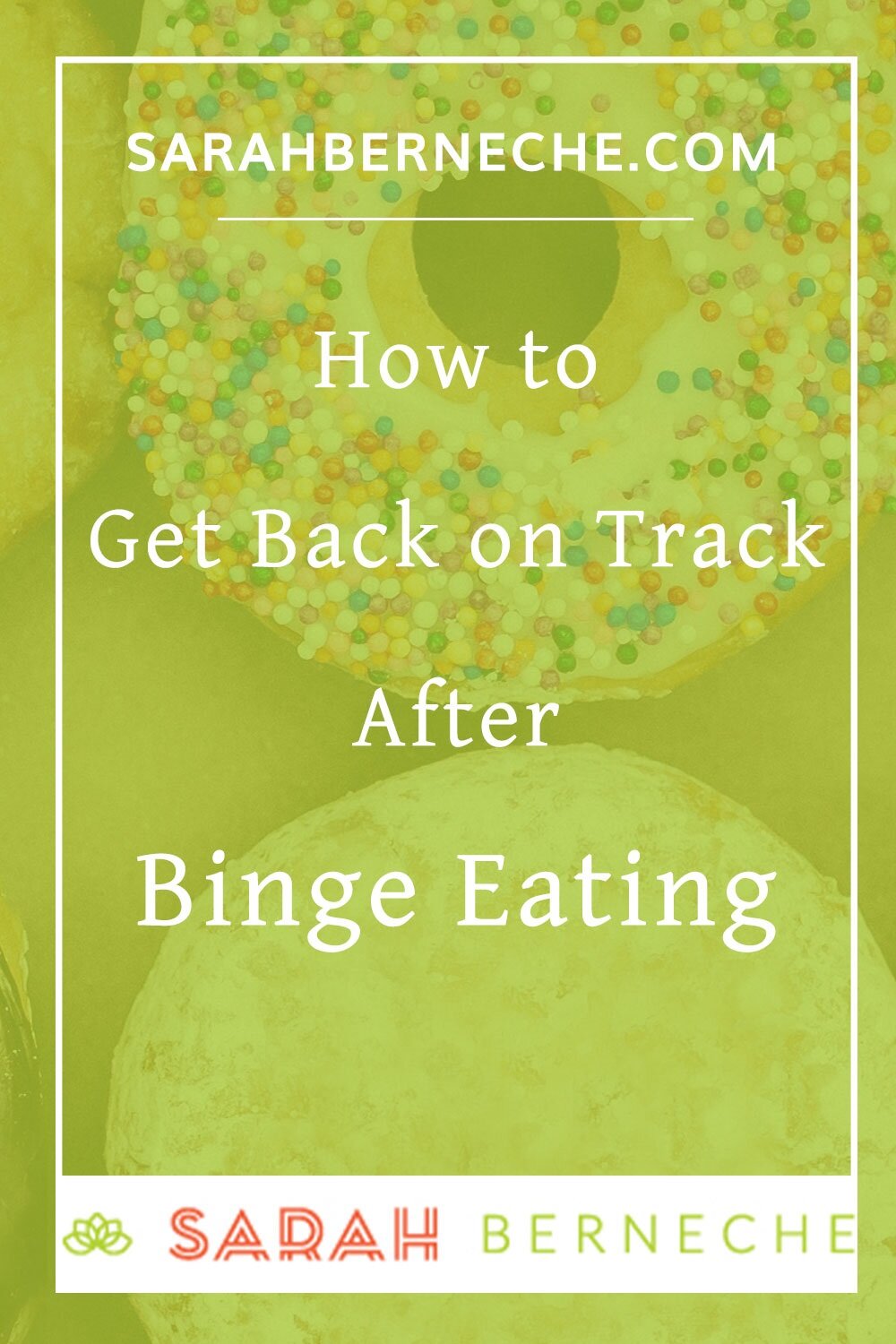New to intuitive eating and still making peace with food?
While healing your relationship with food is essential to recovering from painful binge nights, diet recovery isn’t exactly a magic genie. Most of us grow up drinking from the fountain of diet culture, and detoxing the diet mentality out of our systems is going to take more than a few New York minutes.
With professional help, it’s very possible to stop binge eating at the frequency and intensity that you used to, relatively quickly.
…And it can take some time for binge eating to stop altogether, especially if the food and emotions are tightly wound together.
First, let’s define what a binge is.
Bingeing is different from emotional eating, which involves taking your feelings out on food or using food as a stand-in for other things (e.g. comfort eating, punishment, etc).
Bingeing generally includes: feeling out of control around food, feeling ashamed and guilty for what you’ve eaten, eating at a quick pace, eating in secret, eating in the absence of hunger (though not necessarily), and eating until uncomfortably full (again, not necessarily, either.) While some folks might eat large quantities of food — what we often associate with binge eating — this isn’t universally true. And while we might think of ice cream, potato chips, and drive-through meals when it comes to binge eating, folks will (and do) binge on whatever’s available, including cereal, fruit, and vegetables. Binge eating fruit might get a different response from your family and friends than binge eating French fries and chocolate bars, but bingeing can feel distressing regardless of the food(s) consumed.
Secondly, if you’re new to intuitive eating and still binge eating — and feeling the urge to go back to dieting — this message is for you.
It takes time to learn and embody a more connected way of eating.
It takes time to recover from the physiological and psychological effects of dieting.
It takes time to see your food and body patterns.
It takes time to develop new and additional coping strategies so that food isn’t the only thing.
If you’re still bingeing, it doesn’t mean that you’re failing or that the process isn’t working. If this is happening for you, know you’re not alone — and the way to recover from a binge night is probably going to sound counterintuitive.
1. Keep eating according to your original plan.
I know, I know. You just binged, and your mind is engaged in some diet gymnastics trying to compensate for it. The thing is, bingeing is a reaction to dieting — whether that means you’re not physically eating enough, not psychologically allowing enough, or engaging in behaviours (like over-exercising). To stop bingeing, we need to break the cycle by continuing to eat regular meals and snacks. Do your best (this is where a qualified professional might come in handy). The point is to continue feeding yourself, which helps your body to heal physically and psychologically from the restriction.
Instead of cutting corners or “eating clean,” do your best to stick to your original plan, making space for breakfast, lunch, dinner, and snacks as needed. Compensating through exercise or other practices can inhibit the process.
2. Practice self-compassion.
Healing operates on its own schedule. You’ve already taken a significant leap into making peace with food and challenging your old ways, so go easy on yourself. You’re definitely not alone (many, many people binge/eat emotionally/compulsively eat/etc) as they work on their relationship with food. It isn’t your fault. As I often say, none of us consented to the harm dieting does. Nobody told us how tough it would be to get out, how much our money, time, and energy it would steal from us, how dieting never delivers on its shiny promises. We weren’t born into this world hating our bodies and wanting to change them. Can you re-frame some of your critical thoughts with compassionate reframes? Some of my favourites: 1) Everything the body does is out of protection. 2) Every bite re-establishes trust. 3) My body is wise; it knows the way.
3. Ask yourself what you need.
Attending to your wants and needs is a kindness that our culture doesn’t often encourage, so I’m here to champion it. What would feel supportive and comforting? Maybe it’s spending time with a friend after work, going for coffee with a family member, cozying up to your favourite show while sipping on some hot tea, heading out for a walk to take in some fresh air and observe your surroundings, meditating, listening to music, hanging with your pets, watering your garden, or doodling in your notebook. Making sure to stay hydrated in the ways you enjoy can also help mitigate some of the bloating, indigestion, and discomfort that can come with binge eating.
Which tip feels most beneficial to you?
To learn more about intuitive eating and to stop feeling out of control around food, pick up my book, Enjoy It All: Improve Your Health and Happiness with Intuitive Eating, wherever books are sold — including Target, Walmart, Amazon, Indigo, Barnes & Noble, and your local independent bookseller.

Comments +